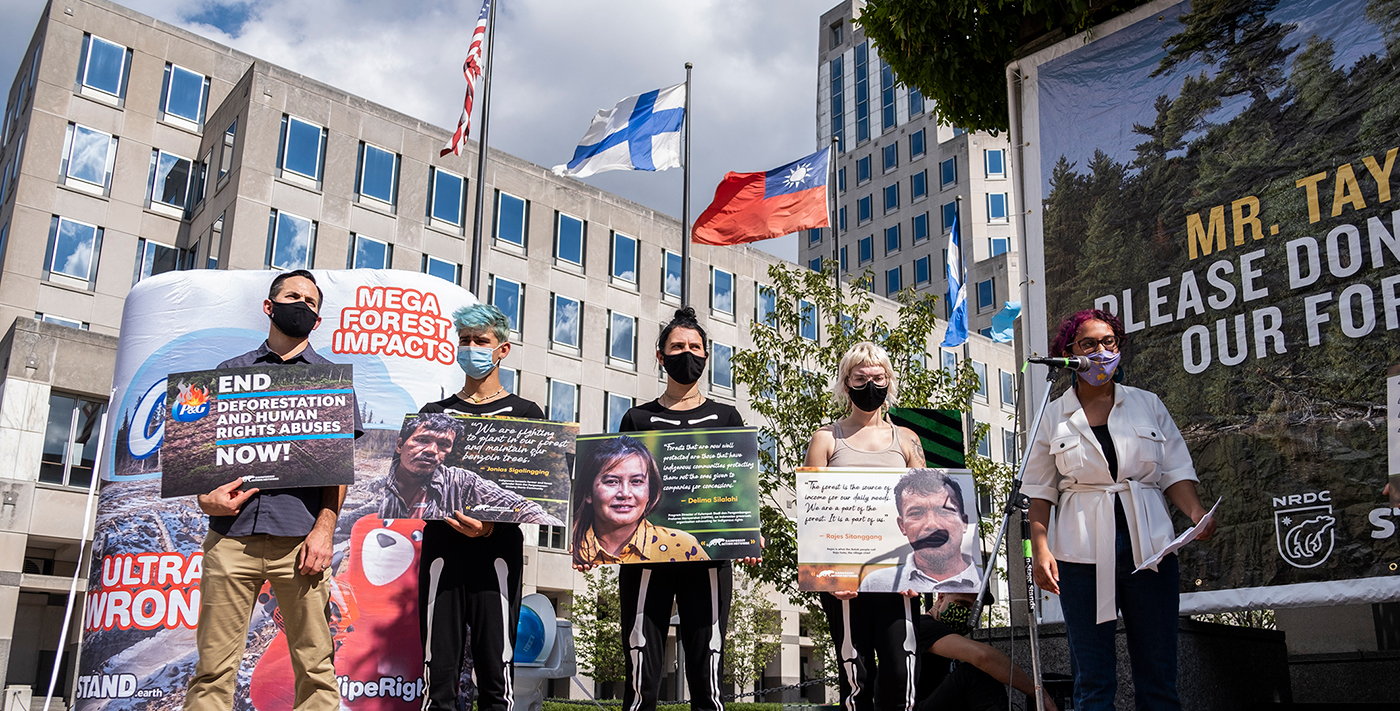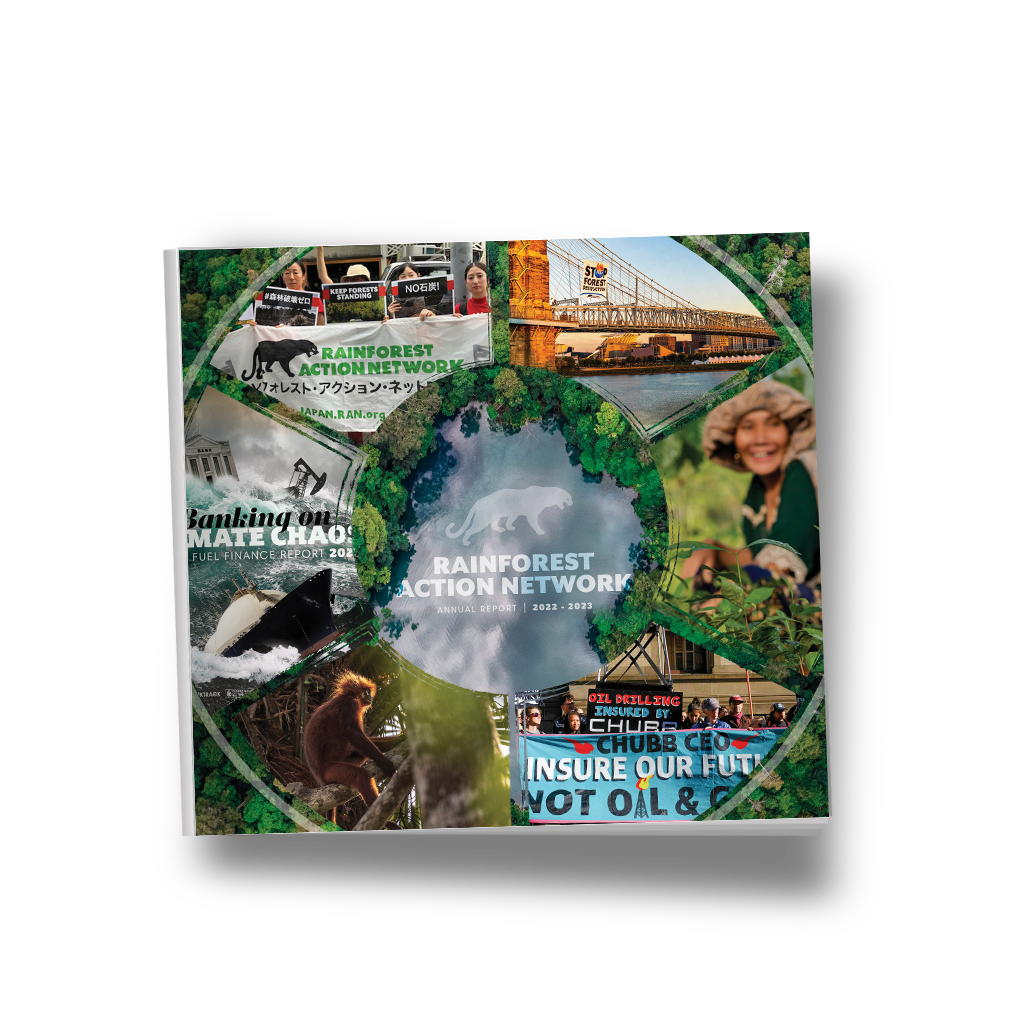Our vision for change is interwoven within our very name. RAN’s network stretches across the globe, from the dense rainforests of Indonesia and the Amazon, to the frontline fights of fossil fuel expansion in the U.S. Our campaigns — and victories — are only possible because of the dedicated efforts of local and Indigenous partners.
Here are some notable highlights from the past year, demonstrating how the nexus of strategy and collaborative alliances with partners gives rise to pivotal moments of campaign progress.
Bridge to the Ancestors
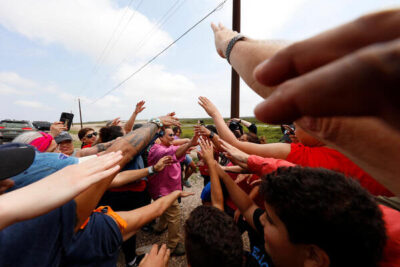
One of our biggest fights is against the expansion of methane, also known as liquefied “natural” gas (LNG). Methane expansion projects result in massive emissions and are causing irreversible damage to the ecosystem and frontline and Indigenous communities in the Rio Grande Valley. The Carrizo Comecrudo Tribe of Texas is a leader in resisting extractive industries of all kinds: from oil and gas to Space X and border wall construction. This spring, RAN staff joined these activists in their Bridge to the Ancestors: an Indigenous, youth-led walk spanning over 600 miles along sacred sites of their customary lands. This is also the route across which methane is transported in the U.S. before being exported and burnt around the world. The inspiring action brought awareness to the immense impact extractive industries continue to have across communities across Texas and the Gulf Coast.
During the week-long walk, French mega-bank Société Générale withdrew its financial support from the highly controversial Rio Grande LNG shale gas export project planned in South Texas.
From North Sumatra to Cincinnati
Delima Silalahi knows a thing or two about holding corporations accountable: Her recent campaign work turned the tide in a decades-long struggle between Batak Toba Indigenous peoples, stewards of some of North Sumatra’s last intact rainforests, and a notoriously destructive pulp and paper company connected to the Procter & Gamble supply chain — Toba Pulp (TPL).
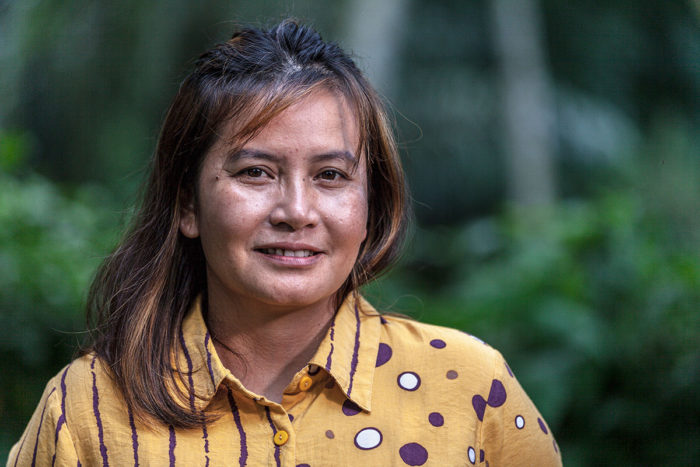
Delima’s organizing helped six Batak Toba communities secure the legal land rights of 17,824 acres, a feat which won her international acclaim and a 2023 Goldman Prize. But her work is far from over: Nearly two dozen Batak Toba communities could lose their customary lands and livelihoods indefinitely due to TPL’s activities.
In May, a delegation of Indigenous Batak Toba activists joined Delima in Cincinnati at the Procter & Gamble headquarters to protest a notable instance of rights violations. A broad coalition of Ohio activists and RAN staff protested alongside Delima and the delegation, including outraged descendants of P&G’s founders. The delegation was granted a meeting with P&G executives where they shared their grievances in great detail.
Protect Verde Island Passage
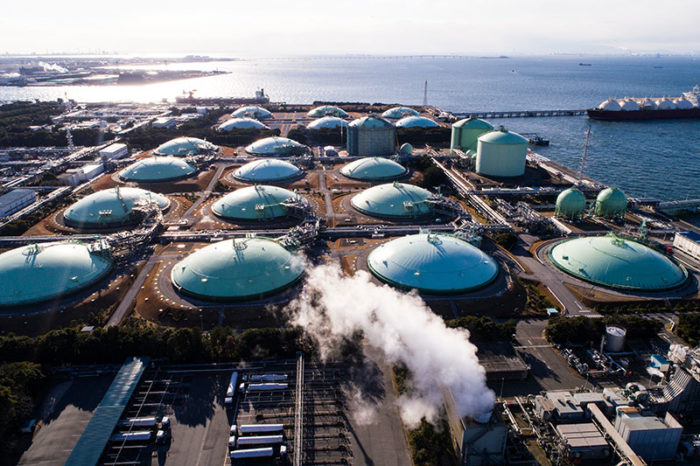
Right now, there are 45 methane gas (LNG) import terminals and power plants proposed in the Verde Island Passage (VIP) in the Philippines — the most biodiverse marine habitat in the world, with over 2 million people relying on it for sustenance and livelihoods. The LNG terminals would make the region the epicenter of fossil fuel expansion in Southeast Asia, and Filipino communities are fighting back.
RAN and international climate finance groups are partnering with Filipino based Center for Energy, Ecology, and Development (CEED) to stop the gas buildout in the VIP area. In June, the CEED team headed to San Francisco for the Institute of Energy Economics and Financial Analysis (IEEFA) conference. RAN & CEED hosted a session on Protect Verde Island Passage, including an exhibit of powerful images that captures the heart and momentum of this important fight.
